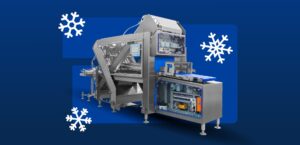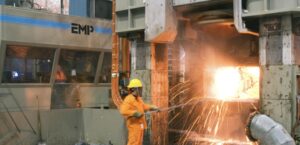How an ERP System Can Help Optimize Your Inventory Management

When your supply chain works as it should, the right products and components get to the right place on time and work just right. Of course, things often go wrong at any of these points. If one part of the inventory management and the supply chain falls apart, a domino effect can leave your company and your clients frustrated. Luckily, ERP inventory management combats supply chain slip-ups.
With a cloud-based ERP, inventory management becomes less of an art and more of a science. Instead of guessing what you need, where it is, and if the shipment will arrive in good shape, your ERP uses data, analysis, forecasting, and monitoring to give real-time insight into all those factors and more. With increased accuracy and agility, you will enjoy all that ERP inventory management has to offer.
Materials Management
To create the products your customers buy, you need to have accurate, adequate, quality materials ready to use. Many companies are still manually managing materials, leaving room for user error and inaccurate estimates. ERP inventory management automates these processes, ensuring that your materials are in stock when you need them.
Any time materials show up late or damaged, it sets your company back. ERP inventory management tracks shipments and quality control so that you can identify problems with vendors quickly.
Product Inventory
Stock levels can be tricky to balance. You need enough to meet demand without delay, but not so much that you’re left sitting on obsolete, unwanted stock. ERP inventory management takes the guesswork out of balancing stock levels, forecasting what products are likely to move and when.
Customer Demand
Your ERP can use intelligent demand forecasting to understand where sales are likely to occur, reducing the planning time and processing needed to get inventory to those locations. It also looks at actual sale behavior alongside forecasting, quickly alerting you to any changes in market conditions so you can adjust accordingly.
Even if customer demand spikes based on seasonal activity, promotions, or other one-off events, your ERP inventory management will adjust back to baseline so that non-repeating behavior doesn’t impact overall predictions.
Process Automation
A good ERP can automate any repeatable process. This cuts down the daily tasks that absorb a lot of time and sap productivity. An ERP will also improve accuracy by reducing human input and thus, human error. In manufacturing, and in inventory management specifically, a lot of redundancies in processes often go unnoticed. When you use an ERP for inventory management, you will learn how productive and accurate your company can be with a centralized, automated system.
Contact our team at Decision Resources to learn more about how an ERP can improve your inventory management, increase your company’s profits, and give you a competitive edge against your competitors. You can also call us at 412-562-9660 or email info@decision.com.
Similar Blogs

December Decision Digest

November Decision Digest





